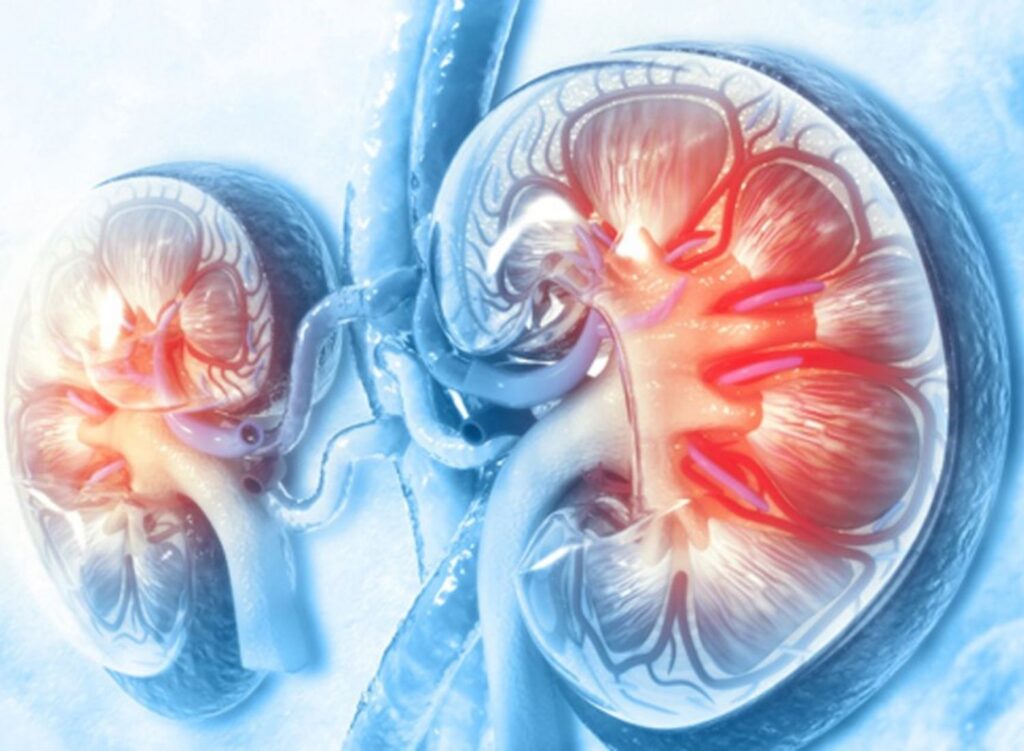Chronic kidney disease, or CKD, also known as chronic kidney failure, is a health disorder where kidney functions deteriorate. The kidneys’ crucial role is to filter out toxins, harmful wastes, etc., from the body through urine. When the kidneys start failing to function properly, it may lead to chronic kidney failure if not treated earlier. Understand these five stages of chronic kidney disease to start its treatment and avoid health problems later in life.
Stages Of Chronic Kidney Disease
1. Stage 1

Stage 1 states that you have mild kidney damage and have an eGFR of 90 or greater. An eGFR of 90 or more than 90 indicates that your kidneys are healthy and working correctly, but you have other signs of kidney damage.
Symptoms Of Stage 1 Kidney Disease
As kidneys still function properly at this stage, the symptoms of stage 1 kidney disease are hard to notice.
Ways To Manage Stage 1 Kidney Disease
- Try to be active at least for 30 minutes a day, five days a week,
- Maintain a healthy weight.
- Control the blood sugar level if you have diabetes.
- Control your hypertension.
- Eat a balanced healthy diet.
- Do not smoke.
- Make an appointment with your nephrologist (kidney doctor).
2. Stage 2

Stage 2 means you have mild kidney damage and an eGFR between 60 and 89. Generally, eGFR between 60 and 89 means your kidneys are healthy and working well. If you have Stage 2 kidney disease, you have other kidney damage signs even though your eGFR is normal.
Symptoms Of Stage 2 Kidney Disease
- dark urine
- excessive fatigue
- high blood pressure
- insomnia
- muscle cramps at night
- itchy/dry skin
Ways To Manage Stage 2 Kidney Disease
- Eat a healthy and balanced diet.
- Do not smoke.
- Try to be active 30 minutes a day, five days a week.
- Control your blood sugar levels if you have diabetes.
- Try controlling your hypertension.
- Consult the nephrologist ASAP.
3. Stage 3

An eGFR between 30 and 59 indicates some damage to your kidneys, and they are not working properly. In this stage, you are more likely to have health complications as waste starts to build up in your body and your kidneys start not to work properly. Stage 3 has two stages:
- Stage 3a – have an eGFR between 45 and 59
- Stage 3b – have an eGFR between 30 and 44
Symptoms Of Stage 3
- High blood pressure
- Anemia
- Bone disease
- Back pain
- Urinating more or less than normal
- Swelling in your hands and feet
Ways To Manage Stage 3 Kidney Disease
- Control your blood sugar or pressure if you have diabetes and blood pressure.
- Do not smoke.
- Eat a healthy and balanced diet.
- Try to be active 30 minutes a day, at least five days a week.
- Visit a nephrologist (kidney doctor) every month.
- Try to meet up with a dietitian who will help you follow a healthy diet.
- Don’t forget to ask your doctor about blood pressure medicines called ACE inhibitors and ARBs if you have diabetes or high blood pressure.
4. Stage 4

Stage 4 CKD is a serious condition; it is the last stage before kidney failure. It means you have an eGFR between 15 and 29. An eGFR between 15 and 30 indicates that your kidneys are moderately or severely damaged.
Symptoms Of Stage 4 Kidney Disease
- Swelling in your hands and feet
- Back pain
- Urinating less or more normally
Health Complications Of Stage 4 Kidney Disease
- High blood pressure
- Anemia
- Bone disease
Hence, have regular appointments with a nephrologist, who will make a treatment plan for you. Visit a nutritionist or dietitian who will help you follow a healthy diet.
Once the kidneys start failing, you will need to start dialysis or have a kidney transplant to live under the doctor’s supervision.
- Preparing for dialysis: Dialysis helps clean your blood upon kidney failure.
- Preparing for a kidney transplant: A kidney transplant is a surgery to provide a healthy kidney from someone else’s body.
5. Stage 5

An eGFR is less than 15 means the kidneys are getting very close to failure or have entirely failed. If the kidneys are not treated at this stage, they will stop completely. This stage requires urgent attention.
Symptoms Of Stage 5 Kidney Disease
- Not feeling hungry
- Swelling in your hands and feet
- Back pain
- Feeling sick and throwing up
- Itching
- Muscle cramps
- Urinating more or less than normal
- Trouble in breathing and in sleeping
Once your kidneys stopped working, you will need to start dialysis, or you may need a kidney transplant to live if the situation worsens.
Remember these stages of chronic kidney disease and act accordingly. Kidneys are the essential organs that help eliminate toxins from the body and keep it safe and sound from health ailments.
Read Also: 6 Golden Steps To Keep Your Kidneys Healthy







